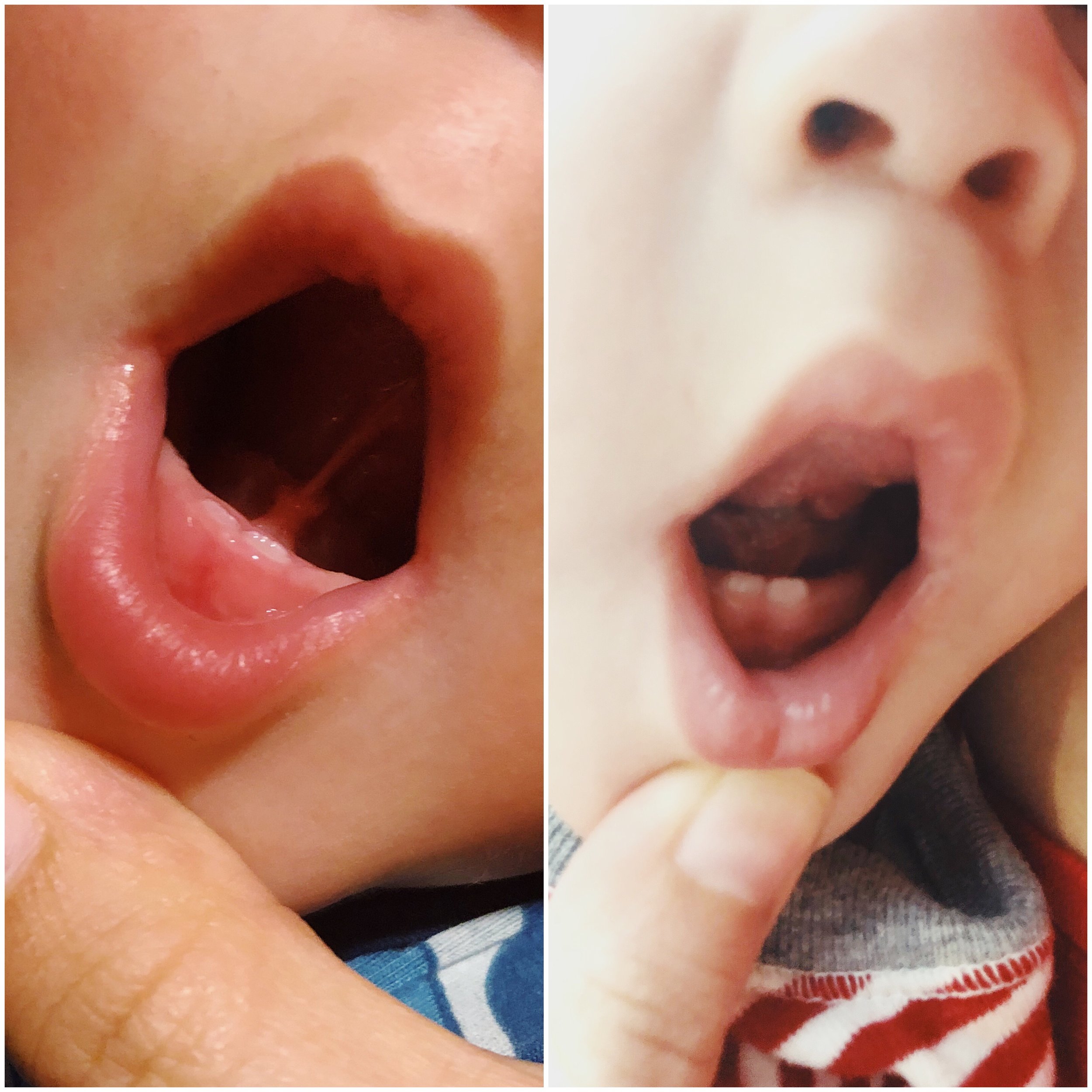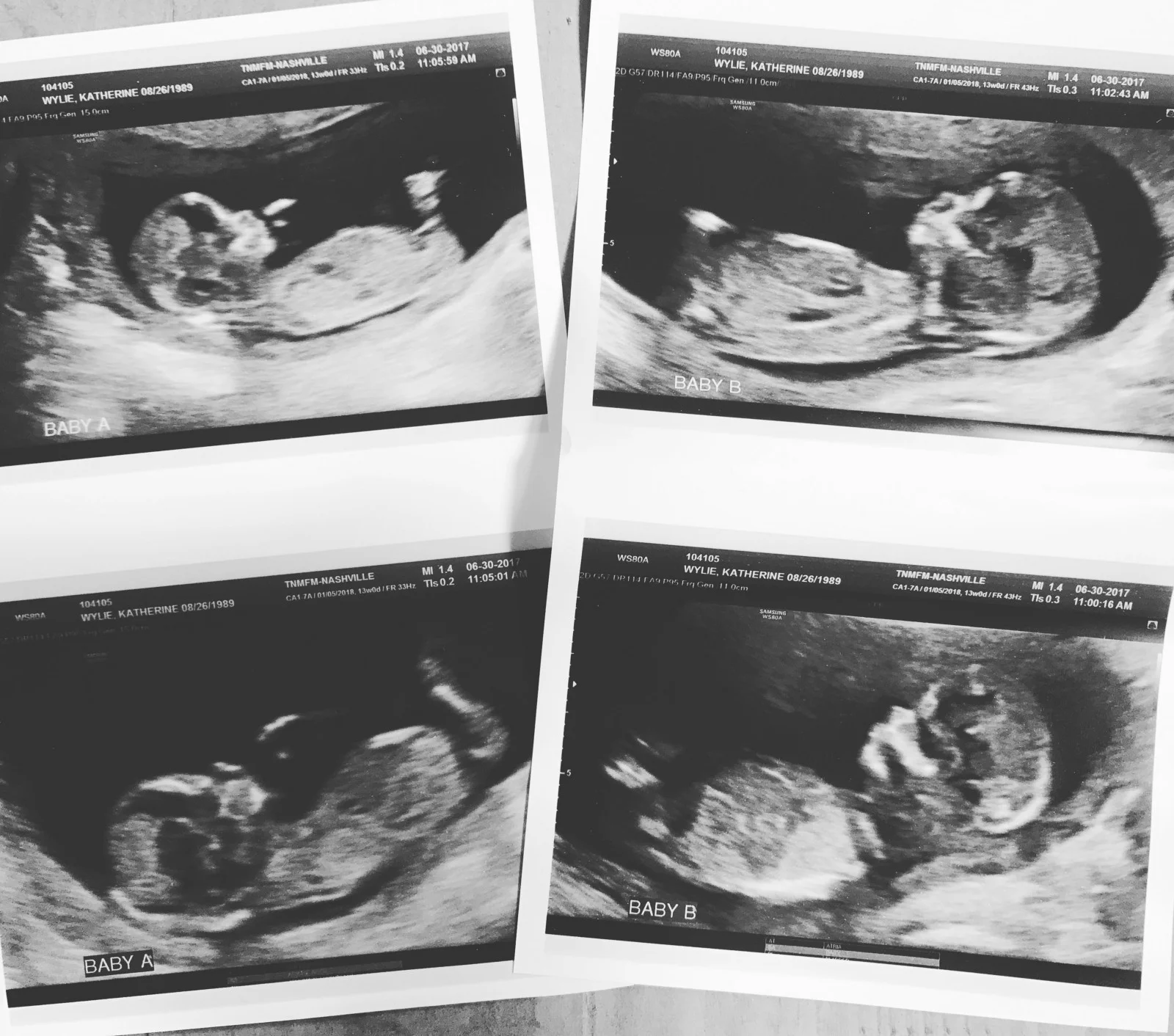Tongue Tied
Let me start this post by saying I am not a medical professional and this is not medical advice. If you suspect your child may be tied, I highly recommend finding a preferred provider in your area and having them evaluated.
I have had many moms message me– “My kid is a difficult feeder/slow gainer/terrible at taking a bottle!! HELP!” I am certainly not a professional but our experience with having Jack’s lip, tongue, and buccal (pronounced “buckle”) ties release has made me passionate about sharing.
Our Tongue Tie Story
When Jack was old enough to try bottling in the NICU, he struggled. He had an uncoordinated latch and inefficient suck/swallow/breathe pattern. After a few unsuccessful bottling attempts, we were sent for a feeding eval and swallow study. The fluoroscopic swallow study showed that Jack was silently aspirating when he drank from a bottle. The study also showed just how uncoordinated his latch was.
Because of the state of his lungs, his team decided that a g-tube would be the safest route to feed jack. He was made NPO (nothing passed orally) and sent home 100% tube fed. Over the next few months we faithfully saw a speech therapist who worked with us on techniques to improve his latch and coordination. She encouraged paci use to help with this, but Jack could honestly never keep a paci in his mouth without holding it in. In February of 2017, I flipped Jack’s top lip for the first time and saw what I believed was a lip tie. I asked our pediatrician to take a look and she said “Oh, I wouldn’t do anything with that.”
After a few months of feeding therapy and very small fluid trials, we were allowed a second swallow study. Jack passed (did not show aspiration on) nectar thickened liquids and this was the golden ticket we needed to be able to wean him from g-tube feedings. As we began to wean, Jack’s interest in eating was present but his ability to transfer significant volume from a bottle was lacking. He would tire easily and lose interest. It was concluded that he just needed to build more endurance. After working for weeks with no improvement, I knew there had to be something missing. I remembered that lip tie and started doing more research.
After about 30 minutes of googling, I was convinced Jack was not only lip tied but also tongue tied. I brought it up to our pediatrician and without even looking in his mouth, she argued, “He’s not tongue tied, see? He can stick out his tongue!” This answer just wasn’t good enough for me. More research led me to the Tongue Tie Babies Support Group on Facebook. I couldn’t believe what I was reading. I felt so affirmed and educated. I learned that most pediatricians are not well-versed in tongue ties. I learned about Preferred Providers (trusted providers that routinely perform complete revisions) and thankfully there was one about 30 minutes from where we live.
I took Jack for an evaluation and the provider instantly said he had lip, posterior tongue, and buccal ties that were very restrictive. He was so restricted that she referred us to an occupational therapist prior to revision.
I wanted to be sure I had all the information I needed to make an informed decision for Jack and to be honest, I did not want to put him through a procedure that could possibly cause oral aversion. I took him to an ENT at the children’s hospital who evaluated him and said that he did have ties but, again, she didn’t think they would cause issues.
I was blown away during our first visit with this new occupational therapist. Jack was 10 months old but not rolling or sitting up on his own. The therapist was able to point out the many ways Jack’s whole body was compensating for restriction caused by his ties. Poor oral function, gross motor delays, shoulder tightness, core weakness, reflux, constipation and other GI issues, raspy voice... these are all things that can be caused by restriction in the mouth. WHAT?! On top of issues with bottling, Jack was experiencing symptoms related to ties that affected his whole body. I was truly blown away.
At the beginning of September, we moved forward with revising his ties. The preferred provider we saw uses lasers for revision and the procedure is done with local anesthetic and is over in a matter of minutes. Recovery involved three weeks of ‘stretches’ to ward off reattachment. I won’t lie, the revision process is rough on a mama’s heart, but the results we saw were truly astounding.
Jack’s posterior tongue tie pre and pos-revision. Sometimes this tongue tie ‘shape’ is referred to as an Eiffel Tower tie for its resemblance to the iconic landmark.
Within a matter of days, Jack weaned completely from tube feedings. Not only that, our new speech therapist was astounded by his near-instant improvement in lateralization of solid foods. He was no longer gagging on solids and could easily move pieces of food around in his mouth from side to side. Not only that, Jack began to roll, sit, crawl, and transition within a matter of six weeks. We did incorporate a couple of chiropractic adjustments to help his body realign from being restricted, and he received OT services 3x week and PT 1x week. His posture, balance, and body shape improved so much. I cannot explain to you how beneficial those revisions were.
What is a tongue tie and how do I know if my child is tied?
Again, I am not a medical professional so I won’t attempt to explain ties in medical terms. Essentially, tongue, lip, and buccal (pronounced “buckle”) ties are restrictions within the mouth caused by excess or tight tissue. Lip ties are the easiest to see by “flipping the lip.”
Many breastfeeding moms notice symptoms of ties in their babies before bottle feeding moms do. Babies with these restrictions often have a shallow and painful latch that can be inefficient in transferring milk. This often causes breastfeeding moms to throw in the towel on nursing and either exclusively pump or switch to formula. Restricted babies who are EBF are often slow to gain weight and can also experience symptoms of reflux or colic.
These symptoms are not limited to breastfeeding babies. Bottle feeding babies can suffer the consequences of restrictive ties, as well. Some parents may not notice there are issues present until it’s time to wean to solid foods and babies have issues with true gagging, lateralization of food, etc. Many children with unresolved ties have issues down the road with tooth decay as well as speech and pronunciation.
I think my child is tongue tied. What do I do next?
If you’ve read all of this and are feeling overwhelmed or concerned that your child may be tied, don’t fret. There is hope!
See a preferred provider. These providers will evaluate your child and make a recommendation on what to do next. I should note that not all ties are restrictive! We took both Jack and Ben to be evaluated (they are identical, after all) and the provider noted that Ben’s ties were not restrictive like Jack’s. Many pediatricians are not well-versed in ties. Posterior tongue ties are difficult to see without a proper evaluation and can often be overlooked.
The Tongue Tie Babies Support Group on Facebook can be a helpful resource, as well as finding your' state’s tongue tie support group. Oftentimes, the members of the state groups can provide helpful feedback on preferred providers.
I will also note that Jack’s revisions were not covered by insurance. We paid out of pocket for his procedure but I would do it over and over again for the results we saw!
If you have experience with a tongue tied baby or child, I’d love for you to share your story, too!







